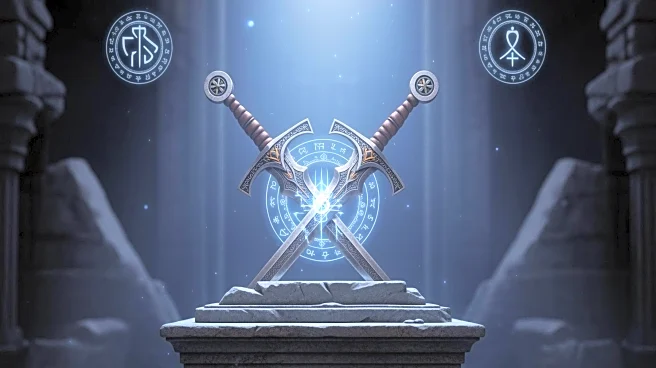What's Happening?
Fatshark has announced that it will continue to support Vermintide 2, with no immediate plans to develop Vermintide 3. The company revealed its roadmap for both Darktide and Vermintide 2, indicating ongoing
support and expansion. Vermintide 2 has evolved significantly since its release, with new campaigns and gameplay enhancements planned. The design director, Joakim Setterberg, emphasized the potential for further exploration within the Warhammer Fantasy world, including expanding existing features like Chaos Wastes. The game has a dedicated player base, and Fatshark aims to enhance the quality of life and gameplay systems.
Why It's Important?
The decision to continue supporting Vermintide 2 rather than developing a new sequel highlights Fatshark's commitment to its existing player base and the game's ongoing popularity. This approach allows the company to refine and expand the current game, potentially increasing player engagement and satisfaction. By focusing on quality-of-life improvements and new content, Fatshark can maintain interest in the game and capitalize on the established fanbase. This strategy may also reflect broader industry trends where developers prioritize long-term support and updates over frequent new releases.
What's Next?
Fatshark plans to introduce new campaigns and gameplay enhancements for Vermintide 2, exploring different directions within the Warhammer Fantasy world. The company will continue to tweak existing systems and improve the game's quality of life. As the game evolves, players can expect more content inspired by the Warhammer Fantasy Role-Play, potentially including new enemies and settings. The ongoing support may lead to increased player retention and attract new players interested in the expanded universe.
Beyond the Headlines
Fatshark's decision to focus on Vermintide 2 rather than developing a new sequel may reflect a strategic shift in the gaming industry towards sustainable game development. By enhancing existing games, developers can reduce production costs and environmental impact associated with frequent new releases. This approach also allows for deeper exploration of game worlds, fostering creativity and innovation within established franchises.










